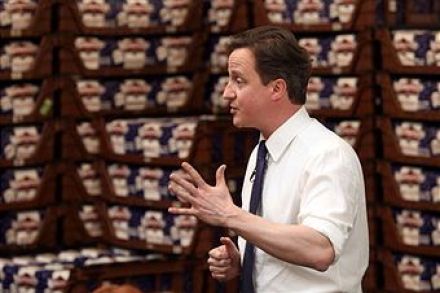Bolton’s nobody's backyard
Fresh from a turbulent plane journey, David Cameron is stalking around Bolton. As Pete notes, Warburtons is Bolton’s family owned bakery and its endorsement may prove significant in a region of marginals. The party that wins Bolton North East wins the election – that has been the case in every election since 1950 except in 1979. Ruth Kelly’s old haunt, Bolton West, is no Labour stronghold either: her replacement, Julie Hilling, is defending a nominal majority of 2,064. These two seats come 115 and 114 respectively on the Tories’ target list. To the north lies Rossendale and Darwen, where boundary changes have benefitted the Tories for once; it is 77th

















